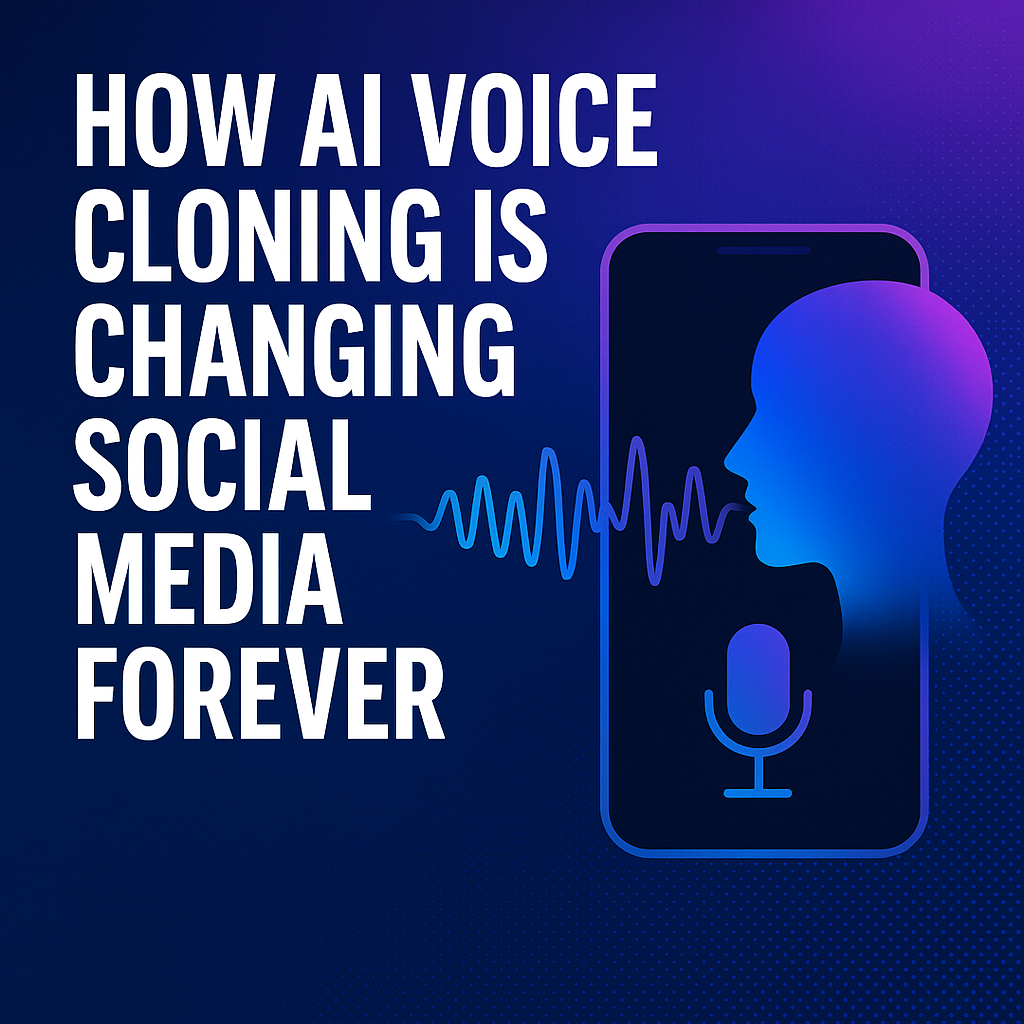How AI Voice Cloning Is Taking Over Social Media (And Why You Should Care)
Have you ever heard a voice online and thought, “Wait, that can’t be real… can it?”
Well, it probably wasn’t.
Welcome to the wild new world of AI voice cloning—where anyone’s voice, from Beyoncé to your best friend, can be replicated with eerie accuracy. It’s exciting. It’s scary. And yes, it’s already changing the way we experience social media.
Let’s unpack what’s going on
First, What Is AI Voice Cloning?
In simple terms, AI voice cloning is when artificial intelligence is trained to copy a person’s voice. It can mimic tone, pitch, accent, and even emotion—after just a few seconds of audio.
Some tools only need a snippet from a podcast, video, or even a voicemail to reproduce your voice. That’s both fascinating and terrifying.
Examples That Will Blow Your Mind
Tom Cruise on TikTok? Not really. Deepfake creators have already nailed his face and voice.
Drake releasing new tracks—only to find out it was all AI.
Morgan Freeman narrating a random video? Yeah, it was AI too.
The truth is, most people can’t tell the difference anymore. The line between real and fake is blurring—and fast.
How Scammers Are Using It
Unfortunately, where there’s tech, there’s trouble. Some bad actors are using voice cloning to:
Impersonate family members in fake emergency calls
Create fake celebrity endorsements
Trick followers into fake giveaways or crypto scams
It’s no longer about robocalls. It’s about believable lies in someone’s real voice.
What This Means for Creators and Influencers
For content creators, it’s a double-edged sword.
On the bright side, voice cloning tools are being used to:
Dub content into multiple languages
Create audio versions of blogs and posts
Save time on voiceovers for reels and ads
But on the flip side, your voice can be copied and misused without your permission.
That means:
Brand safety is at risk
Trust with your audience could take a hit
Copyright laws are struggling to catch up
So, How Can You Protect Yourself?
Watermark your voice content (yes, it’s a thing now).
Avoid sharing clear, long audio of your voice publicly unless necessary.
Educate your audience on spotting AI-generated content.
Monitor fake accounts impersonating your brand.
And most importantly, stay updated on how AI tools are evolving. This space is changing by the week.
Voice cloning isn’t some far-off tech fantasy anymore. It’s here, on your feed, probably in your DMs, and maybe even in that viral video you loved this morning.
The real question is: Are you ready for it?



